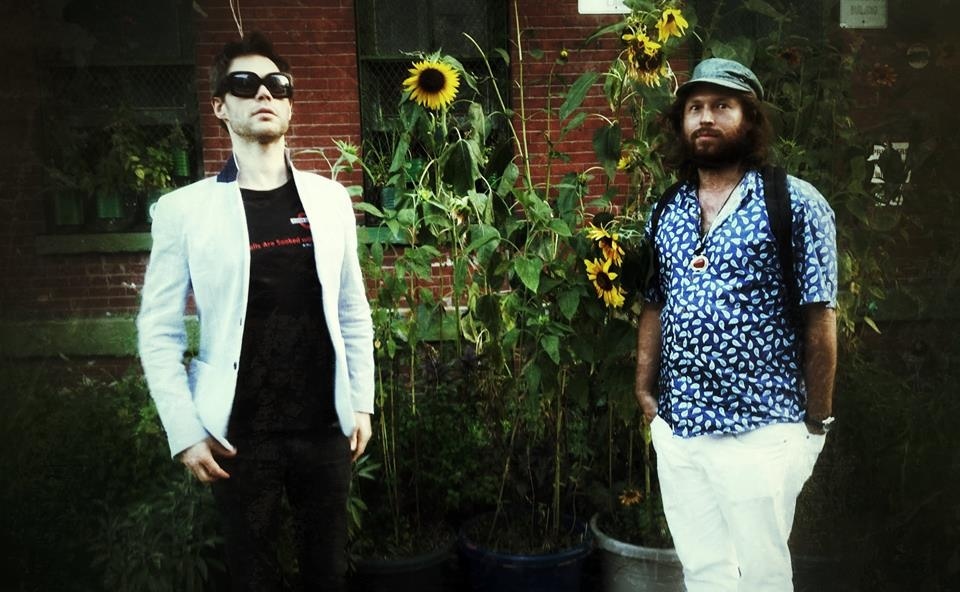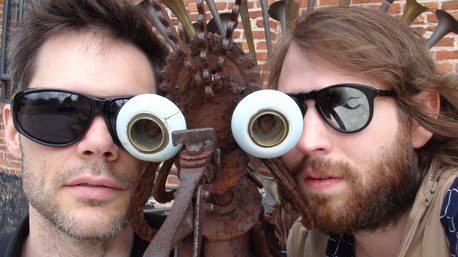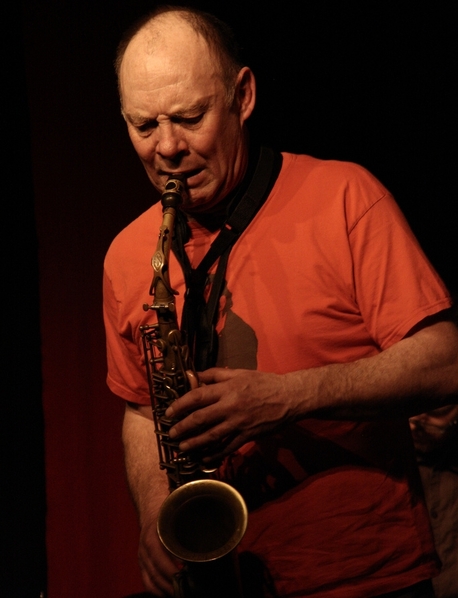Written by:
Bogdan Scoromide & Victor Stutz
Share article:
Lo-fi surrealism
To date, Talibam! has traveled to over 40 countries, completed more than 30 international tours, and released nearly 30 albums. Given their name and occasionally lo-fi surrealism, they might also be just as easily written off as goofballs, but Matthew and Kevin could never be accused of slacking.
Alan Wilkinson was a visual artist before he was a musician. He moved from Manchester to Leeds in 1975 in order to pursue a degree in fine arts with a concentration on painting. After graduation, he began playing the alto saxophone. He joined the group Crow, which also included drummer Paul Hession, who would become Wilkinson's longtime associate. In 1979 he formed the group Art, Bart & Fargo with Hession and tenor sax player Pete Malham,experimenting with playing a wide range of other instruments, mainly percussion, and mixing composition with pure improvisation. After playing in England, Belgium and Germany the trio disbanded after three years. Known for the sheer intensity and physicality of his music, and his ability to react at speed, British saxophonist Alan Wilkinson has played with many of the leading players on the international free scene, as well as being a tireless promoter and advocate of the music.
There’s a very funky language being used to write about avant-garde and improvised music and though it doesn’t mean much or come easy to me, it seems inescapable with the mighty Talibam! (with Matt Mottel on keyboard, electronics and Kevin Shea on drums) and their encounter with Alan Wilkinson (tenor sax and baritone sax). While in Nickelsdorf for Konfrontationen 2016, they were up next and I took a little distance, ‘cause the last time I saw them in Bucharest in 2010 I went full mental.
You can’t go into a paroxysm trance sitting on a chair surrounded by coolness, now, can you? They went full throttle monkey business impetuously exulting my brain to the point of sublime dementia. This time I didn’t go bananas, it was all intellectual fruity power. This outfit is as powerful as any acidic ecstasy (whatever that may be), going straight to the core – blowing it up and sinuously coming back for the climax.
We went to the bar to grab a beer. As FIRE! TRIO + Oren Ambarchi were playing onstage, Alan Wilkinson invitingly started singing Set the Controls for the Heart of the Sun so we ended up singing Set the Controls for the Heart of the Sun loudly, as if that was being played onstage.
We felt too exotic to go back to the concert so we hooked up with Talibam! & Alan Wilkinson for a talk and some distillation.
*photo credits: Peter Gannushkin


